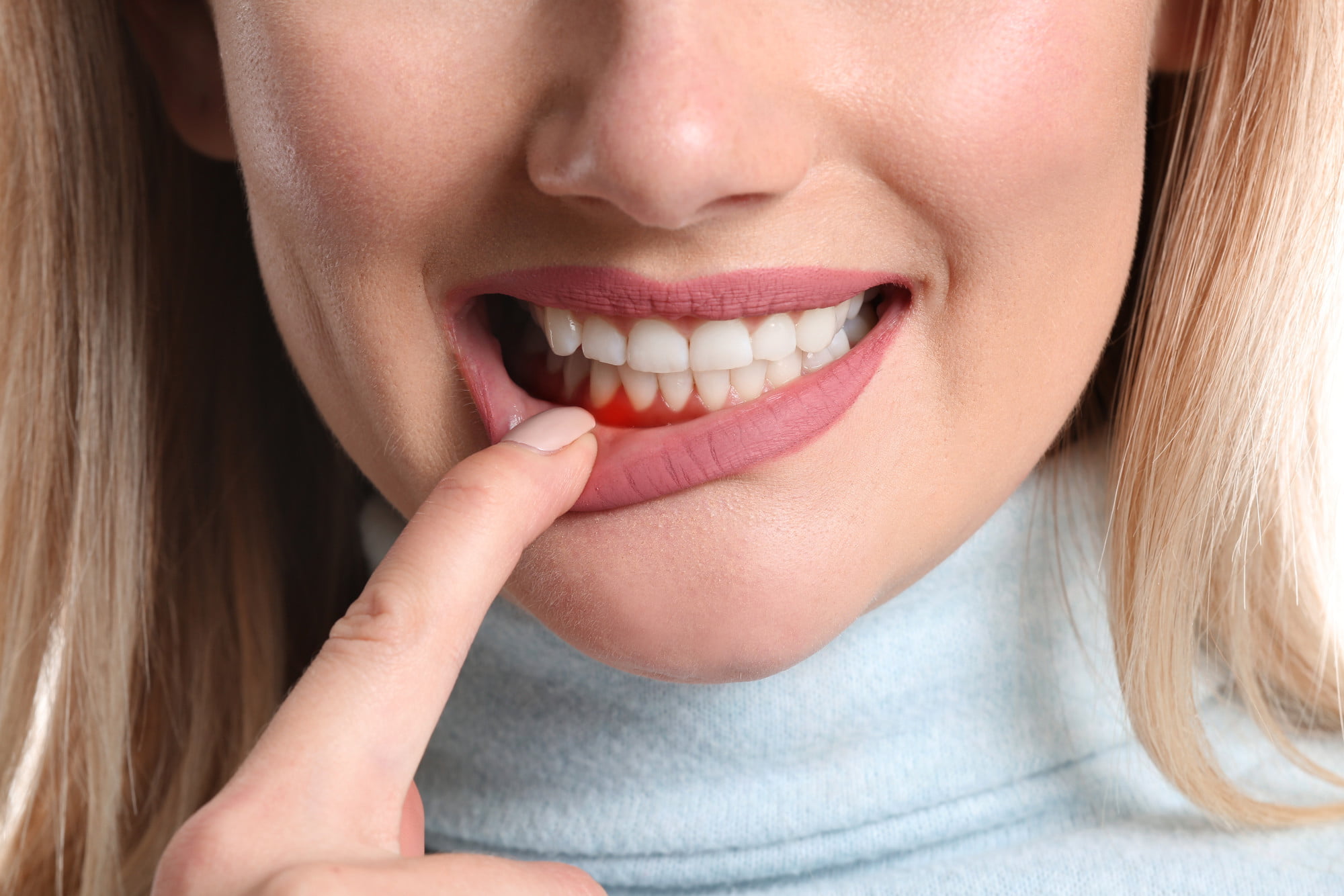Are your gums bleeding when you brush your teeth? Are they receding beyond what’s normal? If so, you might be suffering from an underlying medical issue.
Many people often don’t know that their receding gums are signaling something much more serious. Instead, they blame a bad diet and bacteria for their bad breath and bleeding gums.
If your diet is clean, it may be time to look into other causes of gum issues. The sooner we address the problem, the less likely it’ll be that permanent damage is done to your gums, teeth, and bones.
Keep reading to learn about some surprising causes of gum recession and how to address the problem.
Bacteria Buildup
Receding gums can be quite a surprise, and the cause is usually bacteria buildup. This occurs when the plaque and tartar on your teeth grow and spread below the gum line.
As the bacteria grow, they release toxins that irritate and inflame the gums, causing them to recess. If you notice your gums receding, it’s important to see a dentist right away. They can clean the buildup off your teeth and help to prevent further damage.
Not only does this lead to an awkward smile, but it can also cause serious oral health problems.
Hormonal Changes
Most people think of gum recession as a dental problem, but it can be caused by hormonal changes. Hormonal changes can cause the gums to become inflamed and recede.
If your gum recession is due to hormonal changes, your dentist may prescribe hormone therapy. This can help to stabilize your hormones and reduce inflammation.
Many women experience gum recession during pregnancy as well. This is due to the hormonal changes that occur during pregnancy, which cause the gums to become more sensitive and prone to inflammation.
Gum recession can also be caused by menopause, as the decrease in estrogen levels can cause the gums to become thinner and more fragile.
If the cause is hormonal changes, then treatment will focus on relieving the symptoms and providing support to the gums. This may involve using a special toothpaste or mouthwash, or getting regular cleanings from a Dental Office.
Celiac Disease
Celiac disease is frequently associated with other autoimmune conditions, such as Hashimoto’s thyroiditis, lupus, rheumatoid arthritis, and type 1 diabetes.
Celiac disease can also cause an imbalance in the mouth. People with celiac disease may also experience canker sores, mouth ulcers, and dry mouth.
Most people think of celiac disease as a digestive disorder, but it can also cause problems in other parts of the body, including the gums. Receding gums are a common symptom of celiac disease, and it can be very painful.
Treatment for celiac disease will typically involve a strict gluten-free diet, and this can often help to improve the symptoms of receding gums. In some cases, additional treatment may be necessary, such as surgery to correct the damage to the gum tissue.
Vitamin C Deficiency
Although gum recession is often thought of as a sign of poor dental hygiene, there are actually a number of factors that can contribute to this condition. One of the surprising causes of receding gums is vitamin C deficiency.
If you suspect that vitamin C deficiency may be the cause of your receding gums, there are a few things you can do to improve your intake of this important nutrient.
Vitamin C deficiency is the main structural protein in the connective tissue that gives your gums their firm and pink appearance.
Without enough vitamin C, the gum tissue becomes weak and starts to shrink away from the teeth.
It is very important to make sure you’re getting enough vitamin C in your diet. The best way to do this is to eat a variety of fruits and vegetables, including oranges, grapefruits, bell peppers, broccoli, and Brussels sprouts.
You can also take a vitamin C supplement if you feel you’re not getting enough from your diet, but be sure to talk to your doctor first to determine the right dosage for you.
Smoking
Smoking can damage the gums and teeth in many ways, and it is a known risk factor for gum disease. Gum disease is a leading cause of tooth loss, so it is important to take steps to protect your gums if you smoke.
There are many things you can do to reduce your risk of developing gum disease, such as quitting smoking, brushing and flossing regularly, and seeing your dentist for regular cleanings.
The nicotine in cigarettes causes the gums to become inflamed and this leads to the breakdown of the connective tissue that anchors the gums to the teeth. This makes the gums more susceptible to infection and the progressive loss of gum tissue.
Smoking also increases the risk of other oral health problems such as tooth decay and oral cancer. This is why quitting smoking is the best way to protect your oral health.
If you are struggling to quit, there are many resources available to help you, including nicotine replacement therapy and counseling.
Prevent Receding Gums for a Confident Smile
Oral hygiene is said to be the most common way to avoid receding gums. But, an extra effort to visit the dentist on a regular basis does the magic trick. Dental practitioners do not only help with gum problems, they can also help with the prevention.
It’s no secret that our smiles are one of the first things people notice about us. A smile can definitely light up a room and make a great first impression.
So, what are you waiting for? Visit your dentist today and make sure to get that confident smile!
Is this article helpful? Learn more from the rest of our blogs!




